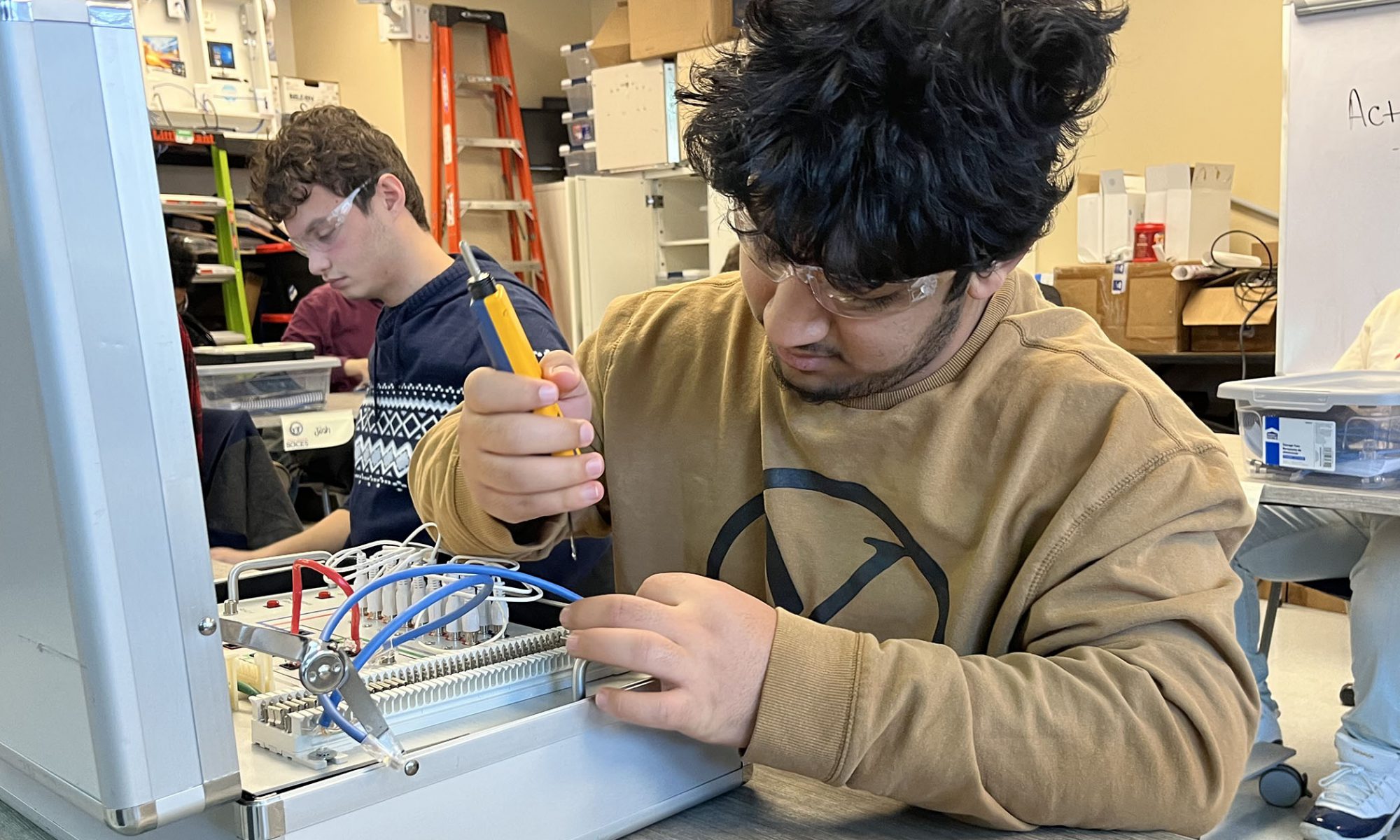Forecasting a national shortage of workers, the president of a local telephone and technology company is offering advice to Capital Region BOCES to help grow the Network Technology program.
Jim Becker, President of MIDTEL Family of Companies, met with Capital Region BOCES faculty and administrators recently to review his request that BOCES add fiber splicing and design to its Network Technology program.
“There will be a shortage of splicers available when the federal government’s $42.5 billion BEAD program rolls out. … This program is unprecedented and will put an immense amount of pressure on resources for at least five to seven years,” Becker said.
The federal Broadband Equity, Access, and Deployment (BEAD) Program is providing billions of dollars to states across the U.S. to expand high-speed internet access by funding planning, infrastructure deployment and adoption programs. Splicing is a key aspect of that expansion.
“I believe BOCES is well positioned to help train for this segment of the workforce. It is a well-paying position, and good fiber splicers will always have work,” Becker added.
Network Technology teacher Ed Henson said he was grateful for the advice Becker provided on growing the fiber optic splicing program.
“Our Network Technology program is designed to help students develop a unique understanding of today’s ever-growing field of network connectivity (copper & fiber optics) and emerging technologies,” he said.
Capital Region BOCES Managing Program Coordinator-Business & Community Partnerships Nancy Liddle concurred.
“The meeting provided an excellent opportunity to meet the needs of our business partners and provide our students with even more in-demand skills that will position them for a solid career when they graduate,” said Liddle.
MIDTEL is one of more than 300 business, union and education partners—such as Charter—that partners with BOCES to help ensure that BOCES fuels the regional and state economies. Through these partnerships, students are able to launch careers directly out of high school or land jobs that will help them pay for future educational opportunities.
Through lectures, course work and hands-on activities, Network Technology students have the opportunity to explore this exciting field and gain the technical knowledge and professionalism needed to prepare them for an after high school career or post-secondary study.

